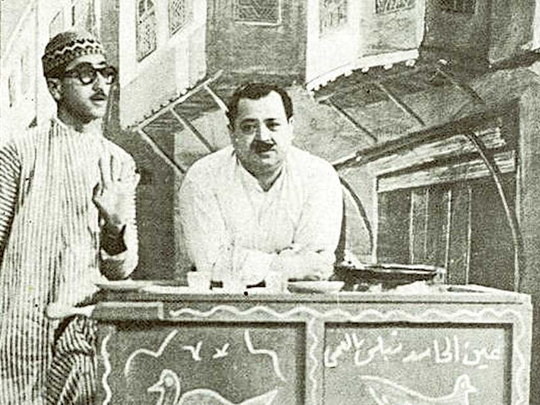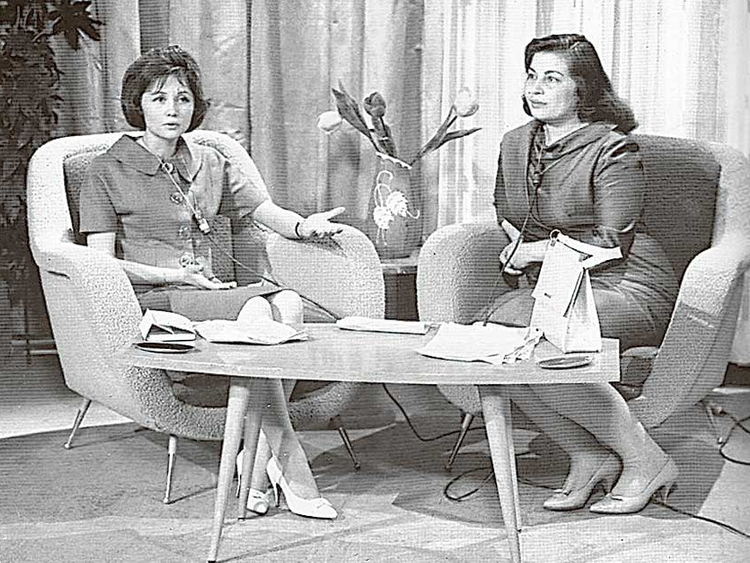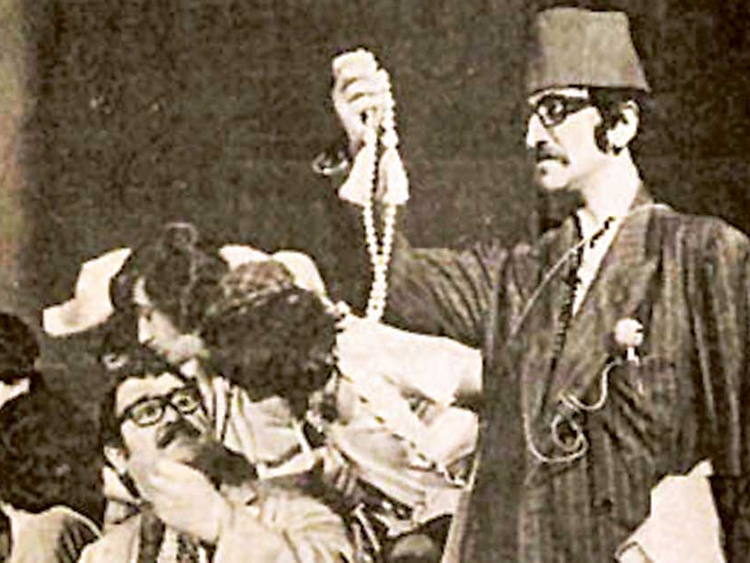
Beirut: Syrian Television, launched during the short-lived union years with Egypt (1958-1961), aired in black and white from its inception in the summer of 1960 until colour was introduced in mid-1978.
Thousands of talk shows, television dramas, interviews, and songs were recorded over an eighteen-year period, and to keep them out of harm’s way, television authorities shipped most of them into a storehouse in Al-Sbeineh, a small town in western Al-Ghouta, the agricultural belt surrounding the Syrian capital, shortly before the outbreak of the current conflict in 2011.
The town, located southwest of Damascus, was overrun by Syrian rebels in 2012 and retaken by government troops in late 2013.
During the battles, the storehouse was hit with cannon fire and most of its treasures were damaged or destroyed.
For three years experts have tried restoring the footage, but only fifteen black and white reels have survived till now.
Other storehouses of archival material destroyed by the current conflict include one in Daraya, a stone’s throw from Al Sbeineh, which has also been completely lost by the cycle of violence.
A third and fourth storehouse are located in the basement of Syrian Television and in Sabboura, a posh residential neighbourhood in the countryside of Damascus.
Both were sheltered from the violence, but their archives were also destroyed by negligence and poor preservation methods, exposed to heat during summer and rain in the winters.
What survived from these archives were stolen by archivists and sold to Arabic satellite networks.
Among the surviving material are some of the comedy classics of pioneer Syrian comedian Duraid Lahham, famous throughout the Arab World for playing the character of Ghawwar Al-Tosheh, a prankster clown, in the 1960s and 1970s.
Not all of his early works managed to survive, however.
Two lost plays are ‘Okd Al-Loulou’, staged in Damascus in the summer of 1961, and another show performed in Beirut in the late 1960s with Lebanese actor Felemon Wehbe.
Only ten minutes of the play ‘Qadiya Wa Haramiah’ survive until present.
Lahham’s first television show, ‘Sahret Dimashq’, has been lost completely and so is the first season of the political satire Maraya, performed for 30-years by celebrated comedian Yasser Al-Azma.
The first season was in 1982.
The opening broadcast of Syrian Television on 23 July 1960, delivered by pioneer anchor Sami Jano, has also been lost and so have all the televised speeches of Gamal Abdul Nasser, Syria’s post union president Nazem Al-Qudsi, Syria’s first Baathist president Amin Al-Hafez, and the only one ever recorded by ex-President Shukri Al-Quwatli, the founder of Syria’s independence from French rule.
It was recorded from Switzerland in October 1961 and aired on Syrian TV in support of a military coup that toppled the union regime.
The entire cinema footage of Syria’s first Independence Day in April 1946 has been destroyed beyond repair and so have black and white reels of prominent figures who visited Damascus like Charlie Chaplin in 1929, French President Charles de Gaulle in 1941, and American writer Helen Keller in 1952.
The concerts of Egyptian diva Um Kalthoum, staged at the Laique School in the Syrian capital in 1956, have also been lost.
UAE founder and president late Shaikh Zayed Bin Sultan Al Nahyan’s visit to Damascus in March 1972 has been lost in film, but survives in still photographs.
Syrian television archivist Sahban Abd Rabbo, co-founder of The Damascus History Foundation, has tried to collect what remains of Syrian TV classics on a YouTube channel called ‘Ahla Shee’.
He has salvaged black and white comedies by Syrian comedians like Abu Sayah and Abu Fihmi, and several rare interviews with the poet Nizar Qabbani and Lebanese composer Mansour Al-Rahbani.
Speaking to Gulf News from Paris, Abd Rabbo said: “The archives of Syrian TV are extremely rich yet unfortunately we failed to preserve it. The Lebanese did, despite the long years of the civil war, with TeleLiban leading the process in a very professional manner.”
His efforts started long before the current war in Syria, but Abd Rabbo adds: “I am convinced that I won’t be able to salvage more than 20-25 per cent of the original content — at best, but it is certainly better than losing everything for good.”














